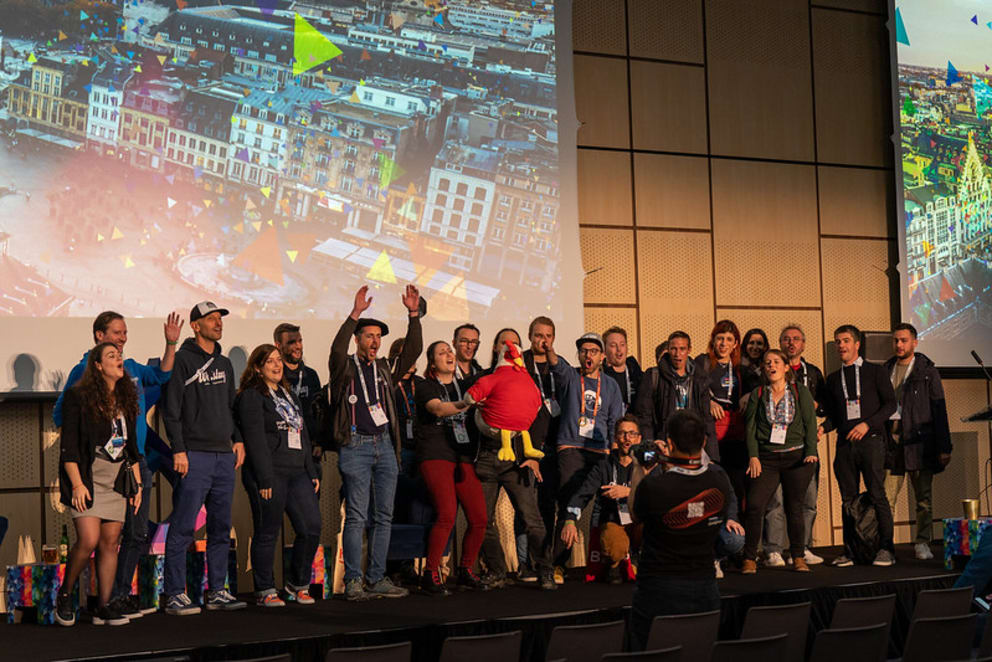DrupalCon Prague 2022 - Recap
Prague, home to many well-known cultural attractions from the intricate Astronomical Clock to the beautiful Prague Castle, the city of 100 spires hosted the latest edition of DrupalCon Europe. Here’s a short recap of what went on at DrupalCon Prague 2022 last week.
The opening ceremony kicked off with a short video of Prague welcoming over 1200 attendees. Next, we learnt about the journey Krtek, a children’s cartoon character, took visiting each European Drupalcamp across Europe and awarding one person a free ticket to DrupalCon at each camp.
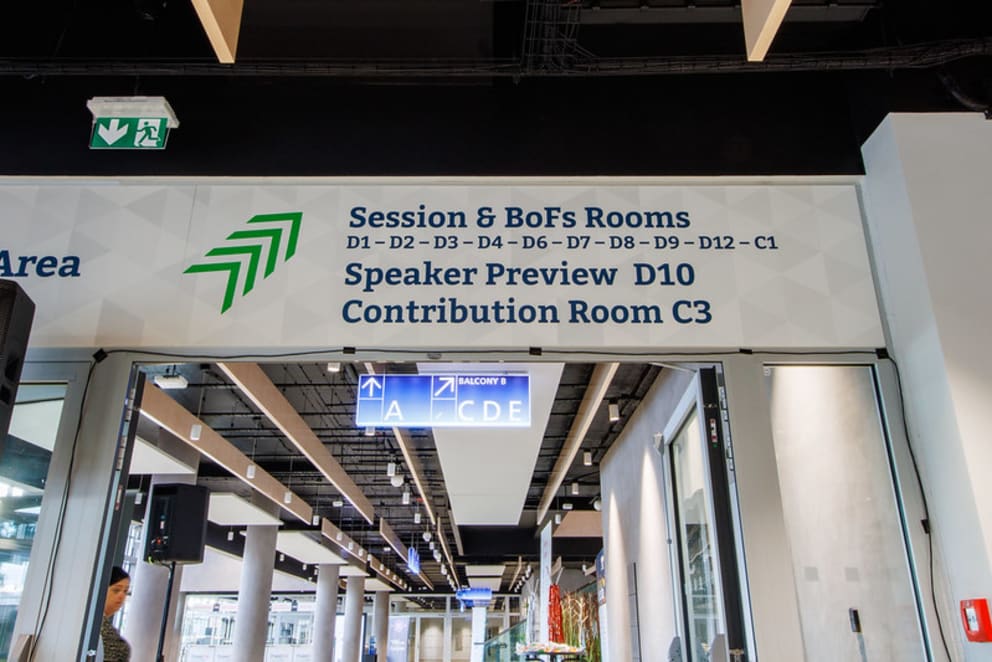
Day 1: Leading With Initiatives
The first keynote started with the Drupal Core Initiative Leads, with Lauri Eskola giving an update on the differences between CKEditor 4 and CKEditor 5. As of Drupal 9.5, CKEditor 5 module is stable and there is zero data loss migration from CKEditor 4 to CKEditor 5. Then, Lesli Glynn presented the Project Browser Strategic Initiative and showed how to support this initiative by fine-tuning the categories, creating icons for modules, or ensuring good descriptions exist for each module.
Gábor Hojtsy stepped in for Björn Brala and talked about the open source collaborations that resulted in Project Update Bot. A critical tool that aids the community in updating all modules across major Drupal versions. Neil Drumm, from the Drupal Association, presented the upcoming changes coming to Drupals’ instance of GitLab, along with the eventual removal of patches in favour of merge requests for the issue queue.
Marine Gandy announced a new initiative about upgrading https://localize.drupal.org from Drupal 7 to Drupal 10. The “Localize Initiative” was formed during Drupal Developer Days in Ghent earlier this year, and aims to modernise the translation service that provides localised strings for all modules and Drupal Core to Drupal websites.
Alex Pot discussed the current state of distributions and recipes. Recipes will allow for installing modules, creating and updating configuration, creating content, and allowing other recipes to be used alongside the already used recipes. Lastly, Ted Bowman talked about automatic updates and the road from beta to stable. Both of these initiatives help make the open web more approachable and encourage people to discover build and stay on Drupal.
You can watch the Drupal Core Initiative Leads keynote here!
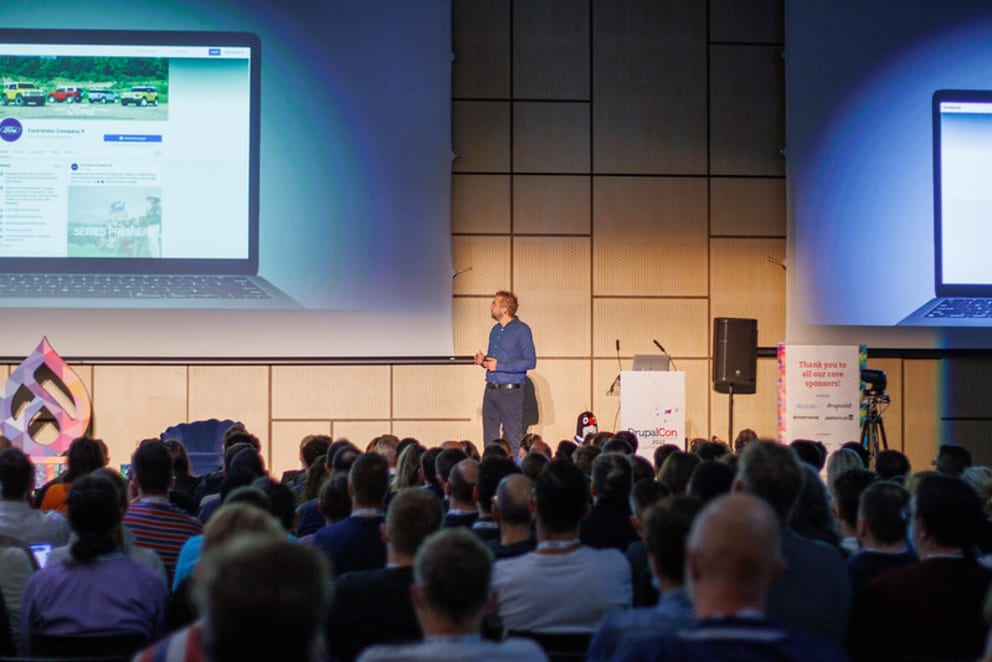
After the keynote, we split into talks spanning 6 parallel tracks. I ended up hanging out in the hallway and catching up with some Drupal friends that I had not seen in person for over 3 years. After the coffee break, I attended Nick Veenhof’s session on “What GitLab has learned from Drupal and what Drupal can potentially learn from GitLab.” Next up was Toby Bellwood’s talk on “Building a Drupal hosting platform for all users - how to ensure everyone has the information and tools they need to do their job.”
Day 2: The Open Web
We started the day off with the Dries Buytaerts’ keynote, the Driesnote. Everyone is always excited to hear about the state of Drupal and what Dries believes the community should focus on in the future. Dries opened with the story of the chair that Drupal was born in, back when speed and innovation drove the development, now 21 years later with such a huge impact on the web, development is driven by caring for all, being responsible while also innovating.
Details matter and form a unique identity, which makes something differentiated and memorable. Proprietary systems remove creative freedom whereas Drupal empowers identity. Drupal allows us to build ambitious web experiences that are secure, flexible, scalable, free of lock-in, mindful of privacy, highly accessible, differentiated, and unique.
“We have to do everything we can to protect the open web” - Dries Buytaert
Dries hopes that we continue to invest in headless solutions, keep modernising our content and authoring experience, and embrace the Drupal “recipes” initiative to help reduce Drupal Core.
You can watch the Driesnote here.
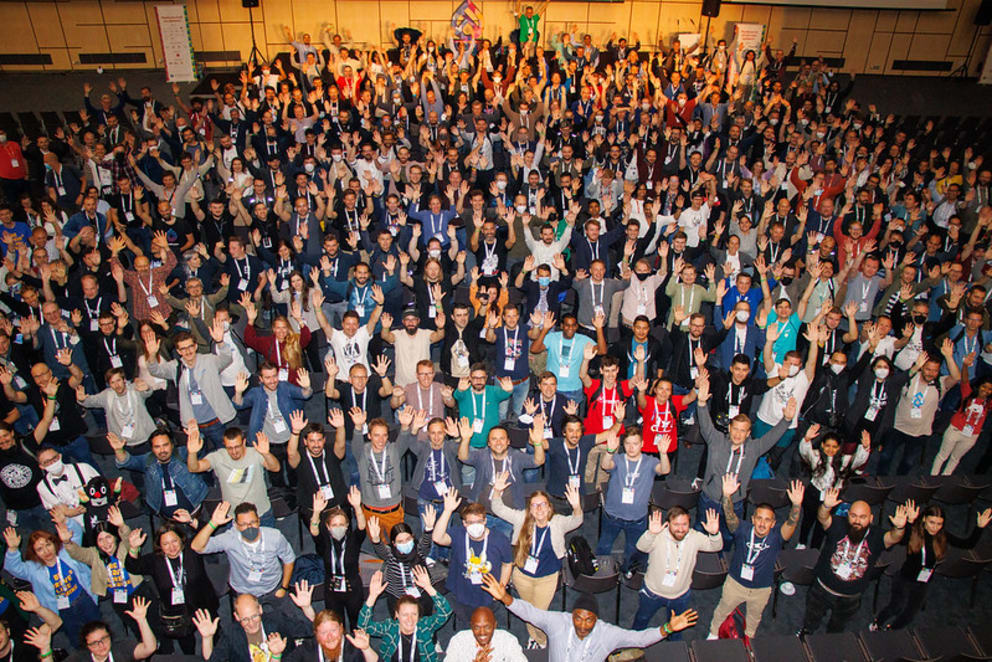
After the group photo, Alexander Varwijk spoke about “Building a GraphQL API - Beyond the basics”. Alexander walked us through building a real-time chat using GraphQL subscriptions with RabbitMQ.
Slides and the GitHub repository to the example application can be found here.
Digital Societies
The second keynote of the day was presented by Taavi Kotka, previously the chief information officer (CIO) of the Estonian Government and known for leading the e-residency program. Taavi gave the keynote on “What are the next big things for Digital Societies?” Estonia has fully embraced digital solutions with its ID cards. The 11-digit code remains the same for an individual's entire lifetime; allowing the person to use this as proof of identification when logging into bank accounts, for digital signatures, for i-Voting, checking medical records, and submitting tax claims.
Estonia keeps its data secure with “data embassies” and has successfully prevented countless digital attacks with its network of services. Each database and application provides an API to retrieve the information it holds. Each service is unique such that data is not repeated across multiple services, for example, passport information is held in one passport service and not duplicated across several different services. If a bank requires your passport information, it uses your unique digital ID to ask the passport service for your information. All of the retrievals are logged so you as an end-user can see who, when, and why a person has accessed your information. You can also hide specific health issues on your healthcare information, statistically, it still exists but it will be hidden, thus empowering Estonians to truly own and control their data.
After the coffee break, Andy Blum and Mike Herchel gave a talk on “All the cool things you can do when you don’t support IE11." Andy and Mike spoke about various CSS selectors such as combining :not() and :where() to remove specificity and select descendants of a class, thus allowing developers to override the styling with the main selector element without requiring any additional specificity. They also showed off how easy it is to change the colours of Olivero, the default Drupal theme, with CSS Variables in Drupal 10.
There was a wide range of talks from many diverse speakers catering towards beginner-friendly to more advanced knowledge per track. All around, the conference felt like there was something for everyone, further cementing the feeling of the Drupal community being inclusive to all.
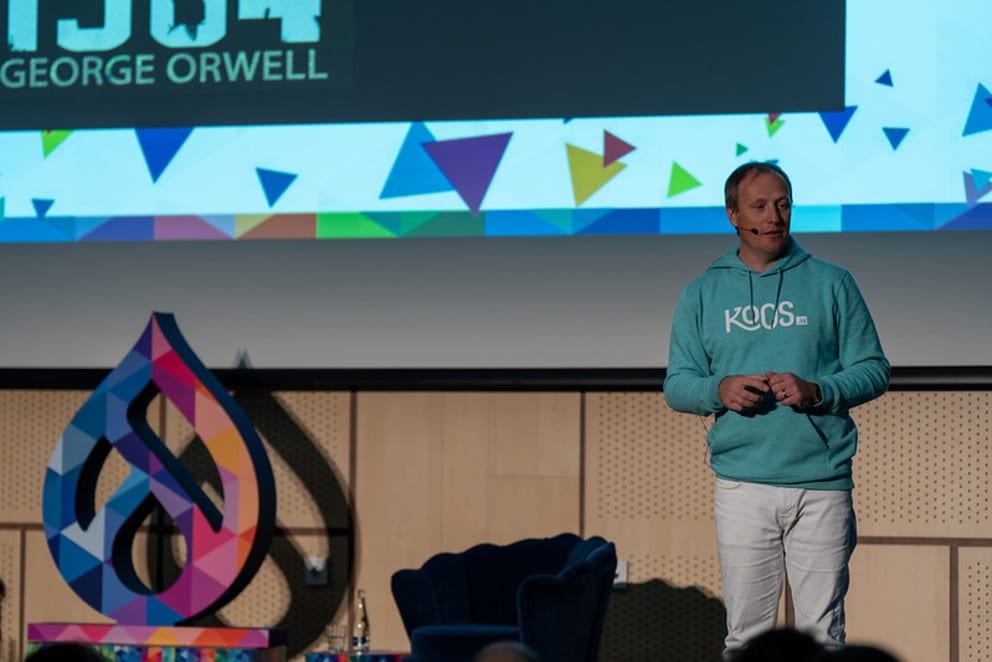
Day 4: Growth
The first “Women in Drupal” award ceremony was held with three categories presented by this year’s jury: Baddý Sonja Breidert, Rachel Lawson, Zsófi Major, and Michael Drejer.
Define: This category included everyone who works on defining an innovative Drupal project, the winner was Cristina Chumillas.
Build: This category was for the makers and builders, developers, architects, HR specialists, or community members who help build a thriving Drupal community. The winner of this category was Surabhi Gokte.
Scale: In this category everyone involved in scaling platforms or businesses be it developers, sales talents, or consultants. The winner of this category was Stella Power.
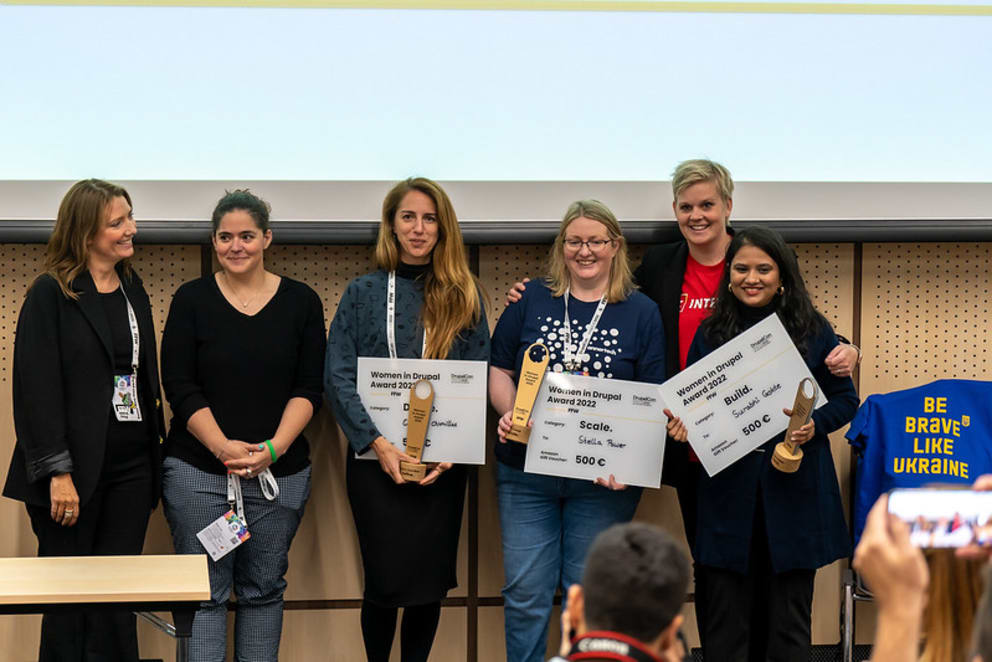
Pavlína Louženská gave a keynote on “Growing your business”, walking us through the essential foundations of scaling your business by keeping empathy at the heart of everything. Pavlína mentioned that over 70% of people are overconfident when it comes to spotting fake news. Pavlína mentioned that we should regularly discuss the company’s DNA with a clear strategy by utilising product vision templates. Aim to make current employees happy with tailor-made experiences, hire diverse teams, introduce continuous product discovery, find your niche, focus, and push.
Engineering is easy. People are hard. - Bill Coughran, ex-Google SVP of Engineering
You can catch Pavlína’s talk here!
After the coffee break, I attended Thor Andre Gretland and Marco Fernandes’ talk entitled “Great new features of Drupal Gutenberg editor - and proper snacks for developers”. Andre and Marco mentioned the main new features that are available now in the Drupal Gutenberg editor such as Patterns, Duotone filter, and Dynamic blocks.
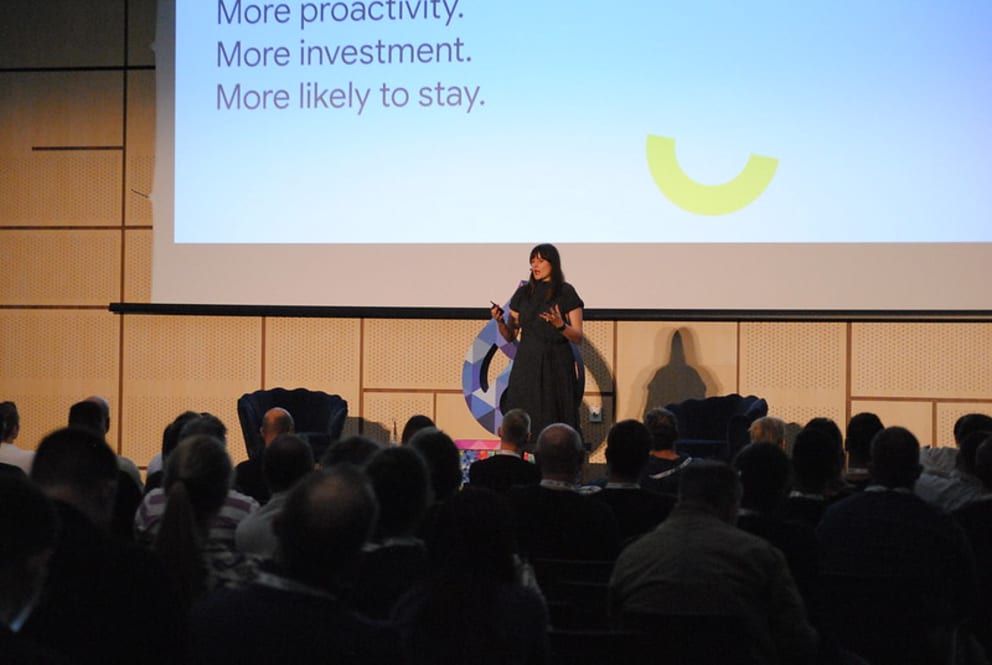
During the wrap-up ceremony, we announced that next year’s edition will take place in Lille, France. We had a special guest from the tourist office of Lille who brought the new mascot, a rooster, to the conference. It was time for Krtek to pass the baton to the rooster to host next year’s DrupalCon.
After the ceremony, Kuoni Tumlare held a final thank you event with the other members of the committee who helped organise this fantastic in-person event. We were each given a small Krtek along with a glass of champagne, followed by attending the Trivia night.
End
Overall, it felt really good to be back to in-person events, meeting old friends, and making new ones. There were many quality sessions and the food was excellent. I’m already looking forward to meeting everyone again next year at DrupalCon Lille 2023.
